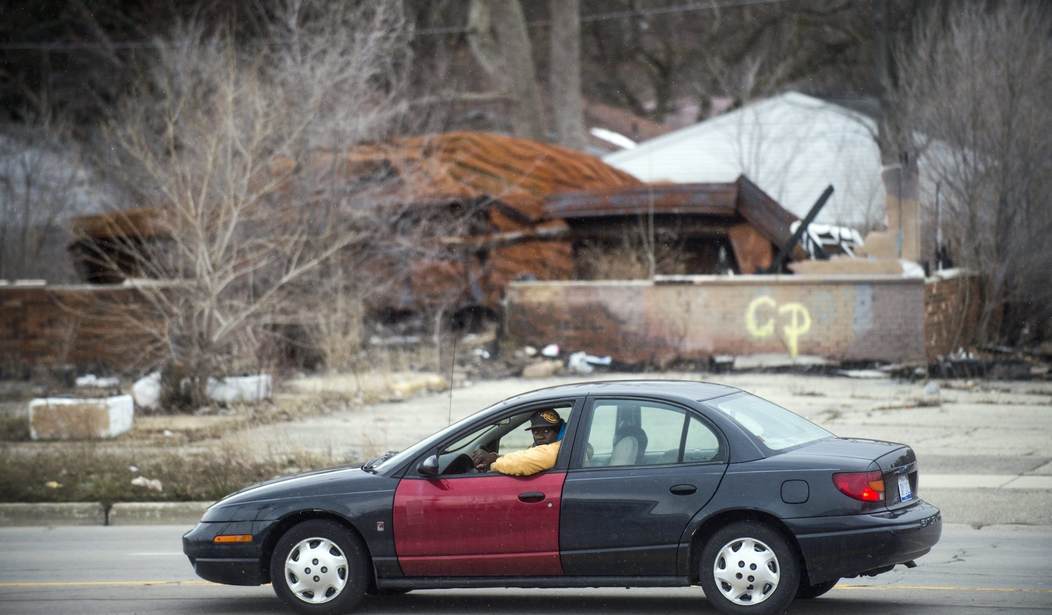The chairwoman of the Senate Intelligence Committee says she respects the “overwhelmingly negative” comments coming into her office from constituents on Syria strikes, but at the end of the day she’s seen more information than they have to make a decision.
Sen. Dianne Feinstein (D-Calif.) said the multiple briefings she’s attended have become “more and more inclusive as the intelligence community puts more together,” and the information shows that the strike on a Damascus suburb happened much later than the administration’s crossing of the red line.
“I know there are at least 11 to 14 prior small incidents and then this larger incident. So I have no doubt that chemical weapons have been used,” Feinstein said at an availability with reporters.
She had asked the CIA to prepare a DVD with the specific visual evidence they were using to ascertain chemical weapons usage. “And we received that this morning. And it’s horrendous.”
It’s being copied and sent to every member of the Senate and perhaps members of the House to view “at their leisure.”
“They have one of the largest, if not the largest storage base of chemical weapons in that part of the world. So if they use it, and they use it as we know they’re able to use it, in large amounts, the devastation is huge,” Feinstein said. “Now, I think 428 children dead on the ground and 1,400 adults, that’s a lot of people. We know that they’ve used it between 11 and 14 times before, but in smaller amounts. I’ve sort of looked at that that they were testing it in some way. So it’s a very serious situation.”
For her undecided colleagues on both sides of the aisle, the senator said she’s trying to ensure “that they have all the information they need.”
“And that’s a big job in itself. So we will keep doing that. And hopefully they will go to other briefings. I mean, they can certainly be undecided, up to the vote, but, you know, there’s a moment of truth in all of this.”
She acknowledged that the Californians who have been contacting her office are harder to convince.
“Every day, I get a report on what the calls are, where the calls are coming from, what the nature of the argument is, and there’s no question, what’s coming in is overwhelmingly negative. There’s no question about that,” Feinstein continued.
“But you see, then they don’t know what I know. They haven’t heard what I heard. And I like to believe now, after 20 years, that I have some skill in separating the wheat from the chaff in this thing, of knowing where we were when Iraq was considered and where we are with this. I don’t want to see nations using chemical weapons with abandon.”
She added that she agrees “to a great extent” that the U.S. is “not the world’s keeper.”
“With respect to the use of chemical weapons, is that if you leave it unanswered, you send a message by that lack of answer,” said Feinstein. “And we can’t do that. I mean, you can look at the children. You can look at the adults. You can look at the convulsions, and it’s hard to believe this is a civilized world.”
“…I think the effectiveness is really up to the military, how they put this together to deter and degrade this chemical weapons effort that’s going on and has gone on for some time now in Syria. Enough.”
The Senate chairwoman and her Republican counterpart in the House, Intelligence Committee Chairman Mike Rogers (R-Mich.), are on the same page.
“This isn’t about, you know, Barack Obama versus the Congress. This isn’t about Republicans versus Democrats,” Rogers said Sunday.
“This isn’t a reality TV show. I mean, at the end of the day, there’s something that will actually happen. People will lose their lives. Nations will make a decision moving forward on chemical and biological weapons based on what we do here. And so, again, we cannot make this about the president versus Congress, or him shuffling off responsibility. We can have all of those debates at another time. This is really about the credibility of the United States of America standing up for an anti-proliferation and use of chemical and biological weapons. It’s that serious.”









Join the conversation as a VIP Member